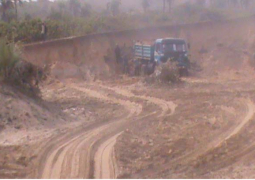(Wednesday 16th October 2019 Issue)
Nine
out of 10 people around the world are exposed to air pollutants that exceed
safe levels, according to the World Health Organization. Yet the problem
persists, and has even worsened in many countries.
The
United Nations reports that every year, household indoor pollution is linked to
3.8 million premature deaths around the world, mostly in developing countries.
Air pollution from transport, meanwhile, is linked to some 400,000 deaths
annually. The transport sector accounts for nearly a fourth of carbon dioxide emissions,
with the UN expecting the proportion to increase.
Developing countries have resisted efforts to
completely stop using coal for energy generation, arguing that the cheap fuel
is needed to power industries. But governments can provide more incentives to
the private sector for investing in green energy, including support in research
and development.
Mitigation
measures are also needed to offset the pollution generated by livestock, which
are among the largest sources of methane and ammonia that aggravate climate
change. Some of the biggest cattle-producing countries plant trees around their
livestock and dairy farms.
Around the Africa, smoke belchers continue to
ply the streets. Open burning of garbage continues in many areas. From afar,
some of this heavy pollution could be visible in most cities and urban
settlements. The health care costs linked to air pollution put a heavy burden
on public funds even in wealthy economies.
In
the annual observance of World Environment Day, the UN is urging governments to
do more to beat air pollution. The observance also aims to inspire individuals
to do their share in improving air quality. Often, the most vulnerable to the
health risks posed by air pollution are those who produce it.
A
Guest editorial
Read Other Articles In Article (Archive)
Up Date on Toubakolong noran
Apr 14, 2010, 12:48 PM



